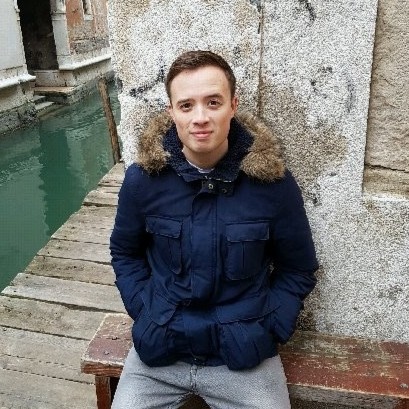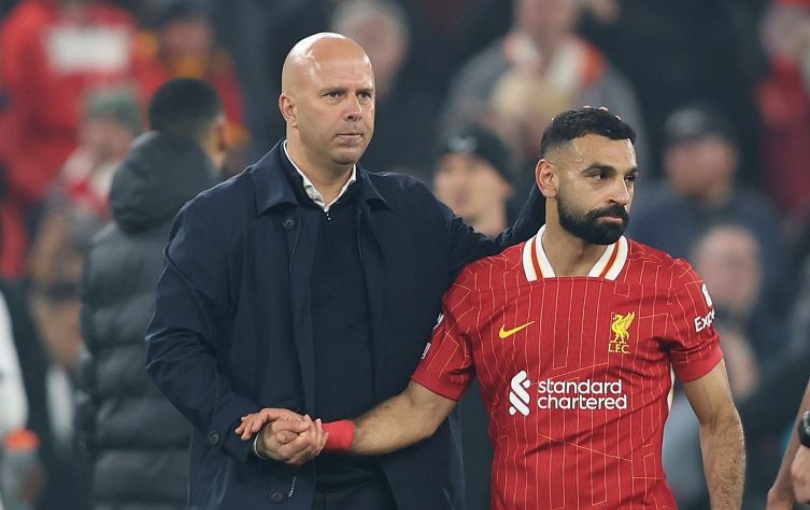FourFourTwo’s 100 most influential people in football right now: 60-51
Starring one of the maddest presidents in Europe, Sepp Blatter's nephew and this summer's hottest transfer target
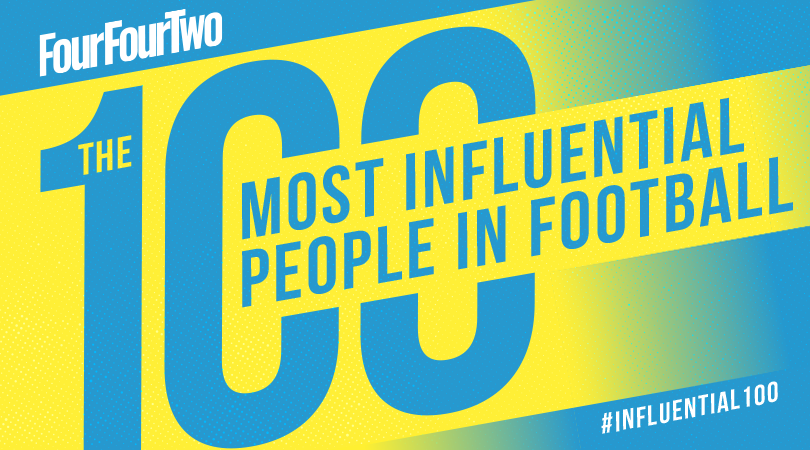
Words: Michael Yokhin, Emyr Price, Seb Stafford-Bloor, Mike Holden, Alex Hess.
60. Jose Otin
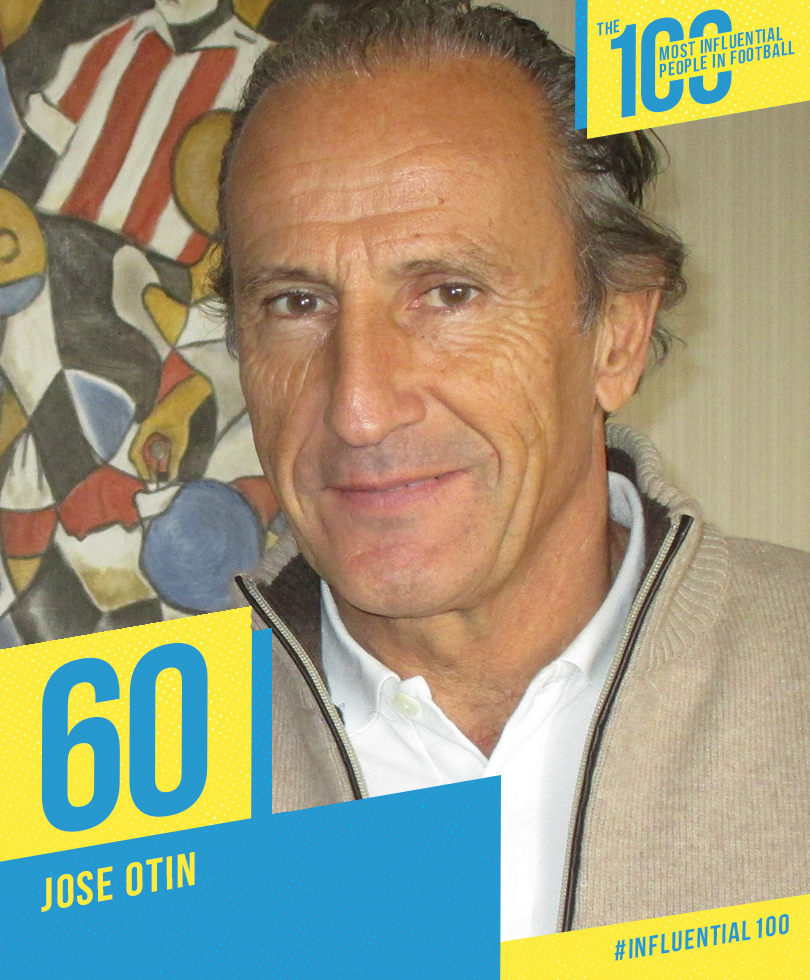
Otin, a former footballer who was never good enough to play in the first division, used to work as radio host and pundit, and his reputation in Spain enabled him to become a successful agent after he opened the business curiously named Bahia Internacional.
His clients now include Bayern Munich's Javi Martinez, Chelsea's Pedro and Atletico Madrid's Fernando Torres. El Nino is one of his most beloved players: Otin has been a diehard Atletico fan from the very beginning – his father first took him to the Vicente Calderon when he was 11 months old.
Football has always been Otin's greatest passion; he recently advised youngsters who dream of becoming professional footballers "to live for the game and to go to school kicking stones". He is known to be open and decent with his clients, and it's no wonder that tens of Spanish stars choose to be represented by him. MY
59. Bruno de Carvalho
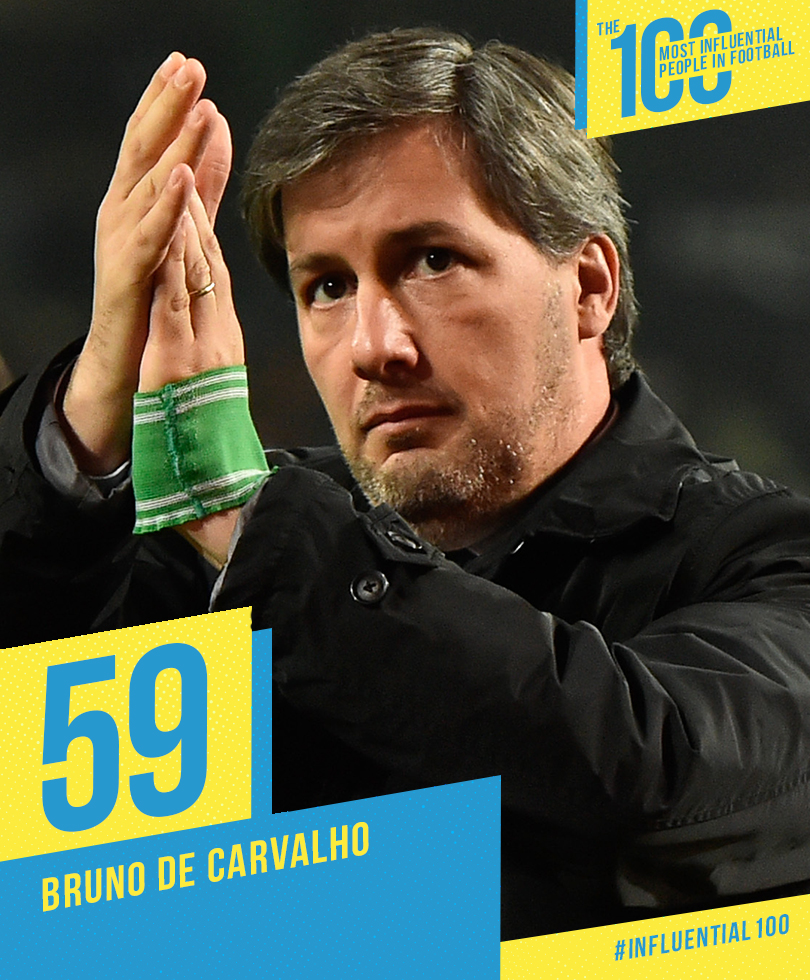
Controversial and outspoken, De Carvalho has a huge influence on Portuguese football as the president of Sporting. He took the reins amid a desperate financial situation in 2013 and is trying to build the capital club as a major force once again, mainly by going to war against agents – especially Jorge Mendes, who was forbidden to do business with the club.
Get FourFourTwo Newsletter
The best features, fun and footballing quizzes, straight to your inbox every week.
The abrasive De Carvalho is known to be rather impatient with his coaches too, and one brilliant young specialist – Marco Silva – was forced to leave the club after just one season in charge thanks to a fall-out with the president.
Sporting then snatched the veteran Jorge Jesus from city rivals Benfica, but that hasn’t helped them to win titles just yet. Nevertheless, they remain a powerful club, and De Carvalho proved to be a tough negotiator when selling Algerian striker Islam Slimani to Leicester for £28 million. Expect more shrewd deals by the president who was re-elected this year with a huge majority of votes. MY
58. Philippe Blatter
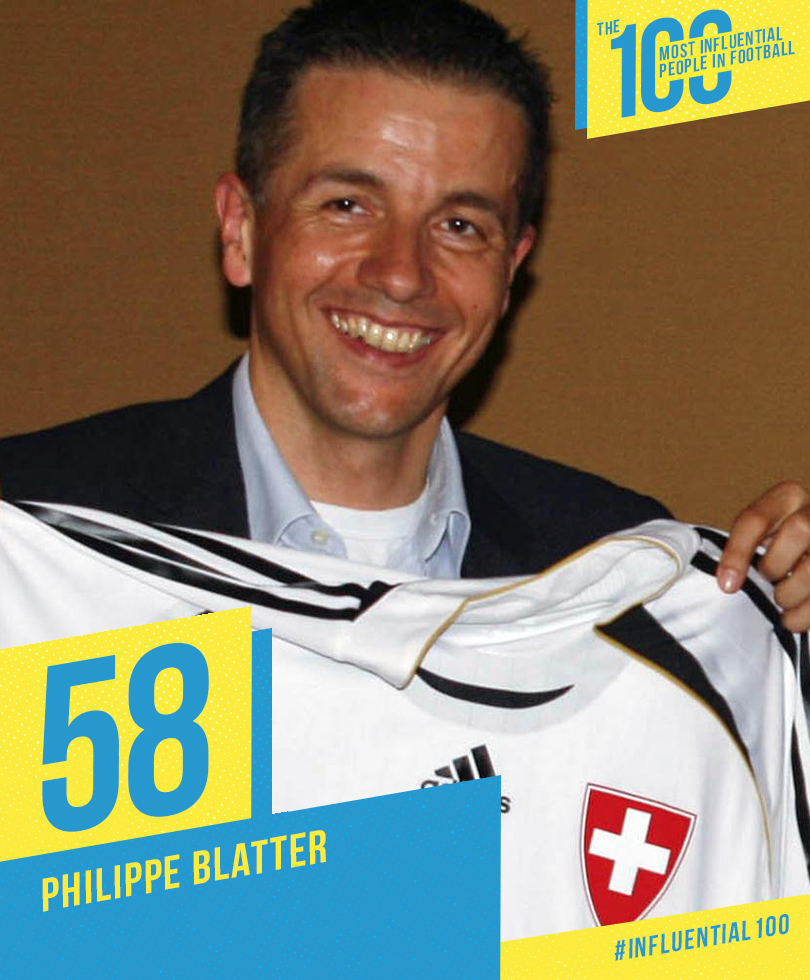
The Blatter family continues to carry huge influence in FIFA – regardless of Sepp's disgraced reputation. Step forward nephew Philippe, president and CEO of Infront Sports & Media, the firm that just so happens to have secured the deal to sell television rights for the 2018 and 2022 World Cups back in 2011.
The younger Blatter's influence is substantial. He now heads the sports division of Chinese parent owner Wanda, who by extension have exclusive broadcast rights for the next two tournaments in 26 Asian territories – including China. It also has links with FIFA's exclusive hospitality provider Match Hospitality, not to mention a 20% stake in Atletico Madrid.
Phillipe's dealings with FIFA are longstanding – as far back as 2000 he worked for McKinsey & Company, who were subsequently hired by Sepp on a consultancy basis for FIFA. The Blatter 'legacy' lives on. EP
57. Jorge Nuno Pinto da Costa
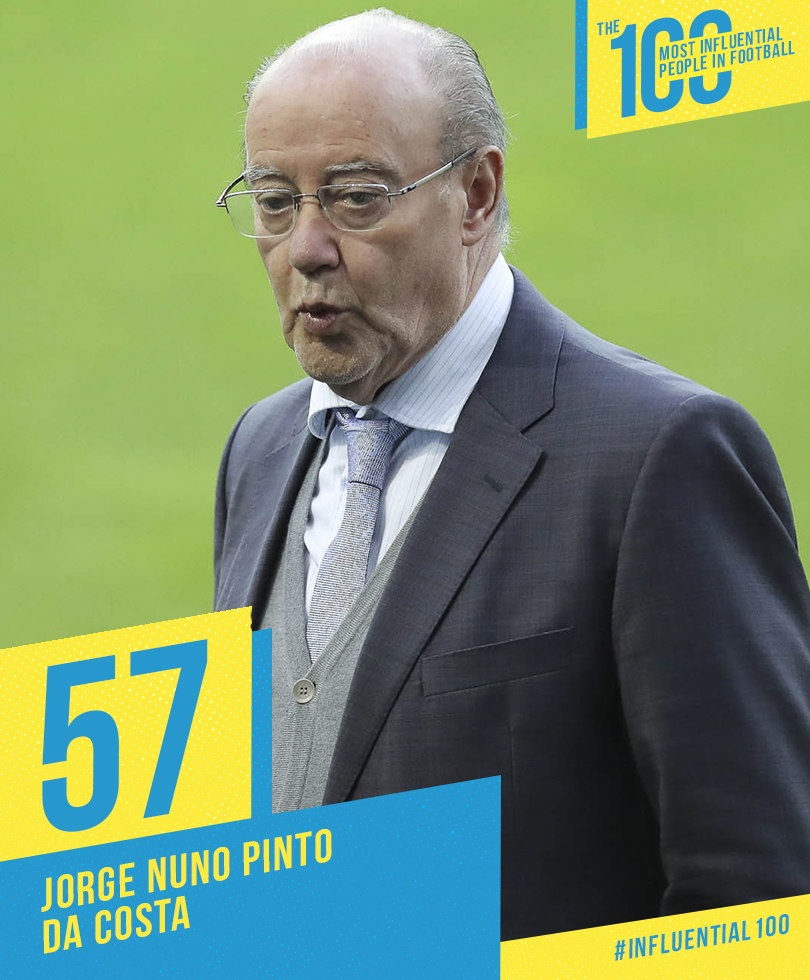
It is virtually impossible to imagine Porto without their flamboyant president. Pinto da Costa has been calling the shots at one of the biggest clubs in Portugal since 1982, and oversaw the historic European Cup triumph in 1987 at the beginning of his remarkable tenure.
In the new era after the Bosman ruling, Pinto da Costa made a name for himself for his uncanny abilities in the transfer market, signing relatively anonymous players – many of them from South America – and selling them at a huge profit.
The examples of Deco and Radamel Falcao stand out, but Porto managed to make money for players who were not too impressive after leaving the club, including Eliaquim Mangala, Jackson Martinez, Giannelli Imbula and Danilo. A notoriously tough negotiator, Pinto da Costa has led Porto to no fewer than 20 championship titles during his time as president, making him one of the most successful bosses in football history. MY
56. Daniel Levy
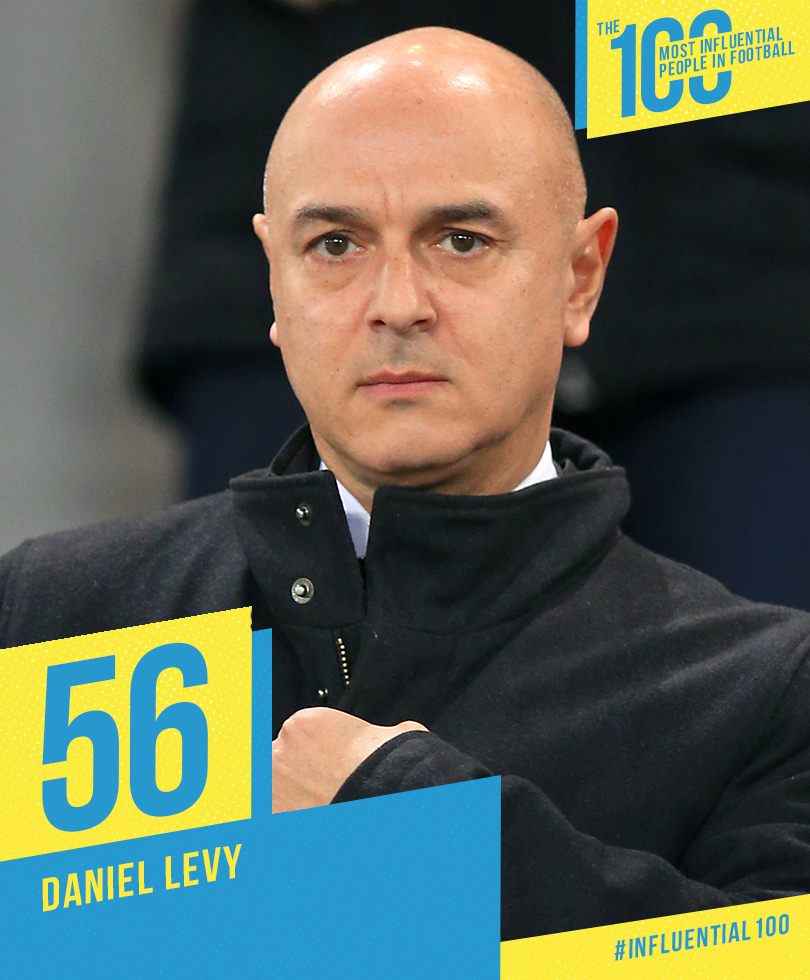
Probably low on this list by his own design: Levy is notoriously private and his reputation depends almost solely on second-hand anecdotes. His 16 years as Tottenham’s chairman have characterised him as one of the savviest financial negotiators in the game and, by virtue of his willingness to bounce between managers and organisational philosophies, as a latter-day Doug Ellis.
The ends, however, have justified the means; Levy may not have always been universally appreciated at White Hart Lane, but his rigid stewardship has allowed Spurs to climb to their highest point in the modern era and, shortly, shall provide them with the largest club stadium in London.
His ability to successfully navigate that narrow sea, between commercial sustainability and sporting performance, portrays him as one of the shrewdest chairmen currently working in football. SSB
55. Monchi
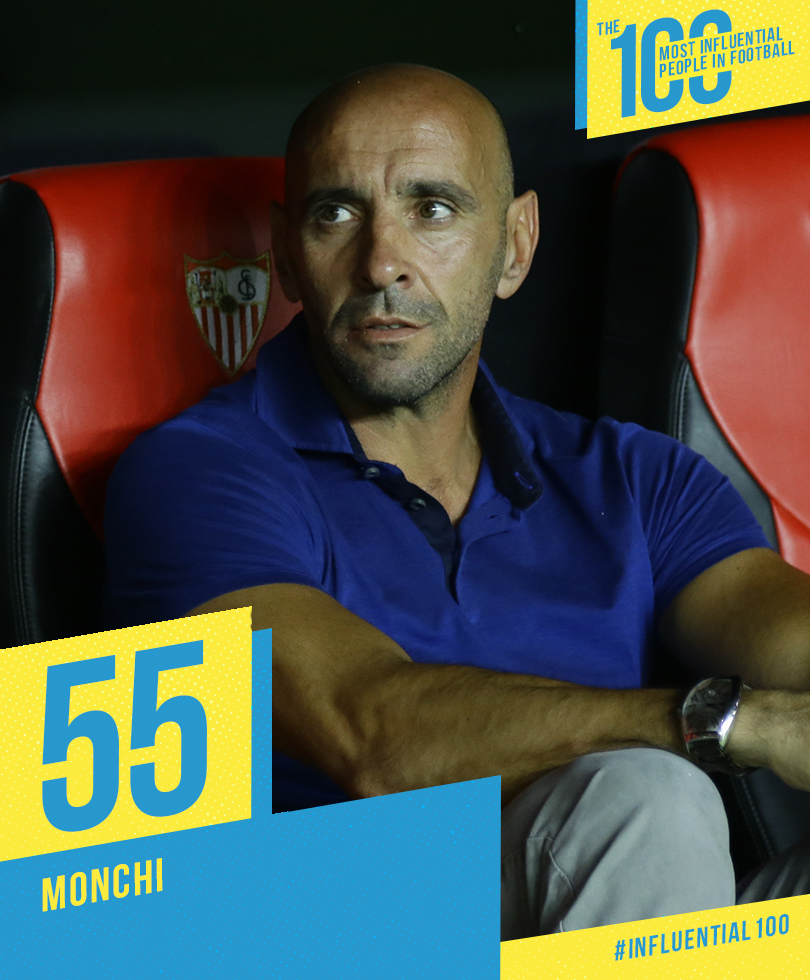
You can’t really put a true number on the value that Ramon Rodriguez Verdejo brought to Sevilla over the past 17 years, but best estimates put their profit from player sales at around the €250m mark.
However, as 'Monchi' himself quite rightly states: "No one ever takes a 'great economic results' banner to the stadium," so he would prefer to be judged by 16 consecutive top-half finishes and the nine trophies won since 2006, compared with just four in the club’s 116-year existence prior to that.
A switch to Roma has taken place already, where his brief is simply to work the same magic. It will be intriguing to see whether his success can be replicated from a higher starting base with bigger expectations, and without a global scouting network exceeding 700 already in place.
If he gets it right, Juventus’s imperious run of successive scudetti (soon to be six) might soon be under threat. MH
54. Antoine Griezmann
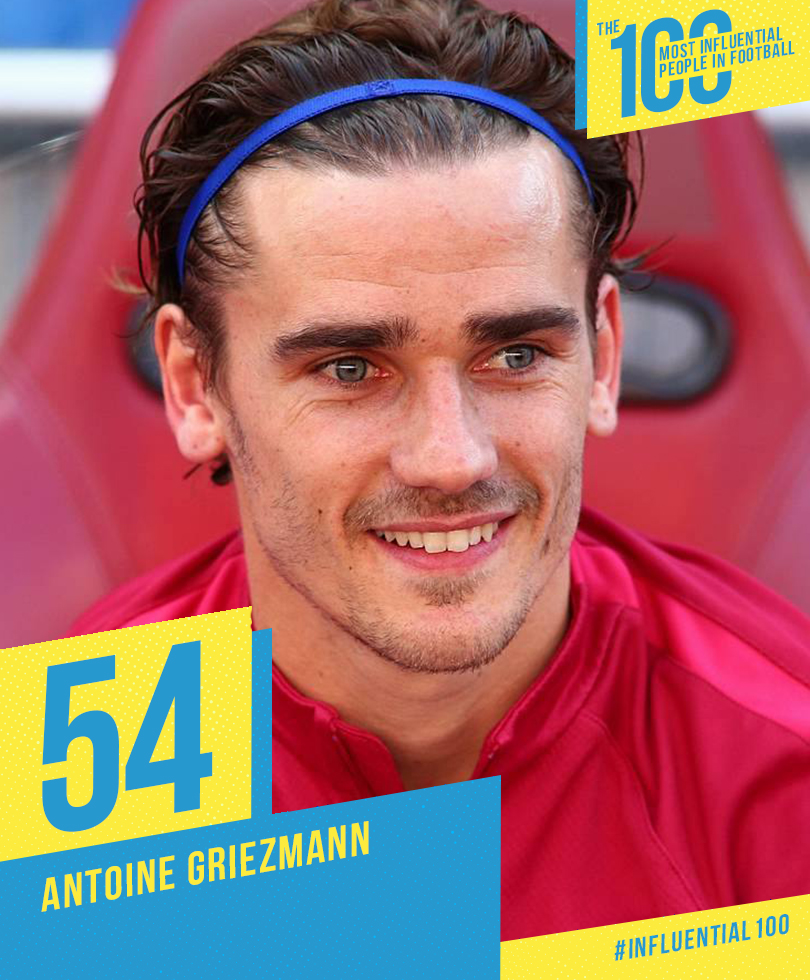
Any lingering reservations about Griezmann’s place in the ‘world class’ category have been firmly dispelled over the past 12 months, and his signature is likely to be prized more than any other this summer.
At Euro 2016, all the pre-tournament hype was centred around Paul Pogba as the man to follow in the footsteps of Michel Platini and Zinedine Zidane as France talismen, but it was Griezmann who stepped up when it mattered most, scoring crucial goals against Albania, the Republic of Ireland (twice) and Germany (twice) to land the top goalscorer award with six in total.
His feats with Atletico Madrid this season have followed in a similar vein: the 26-year-old former Real Sociedad man has produced something remarkable on several occasions to settle a game in which the Colchoneros were below their best.
Simply, there’s no better big-game player who isn’t already tied down by one of the European superpowers. MH
53. Andrea Agnelli
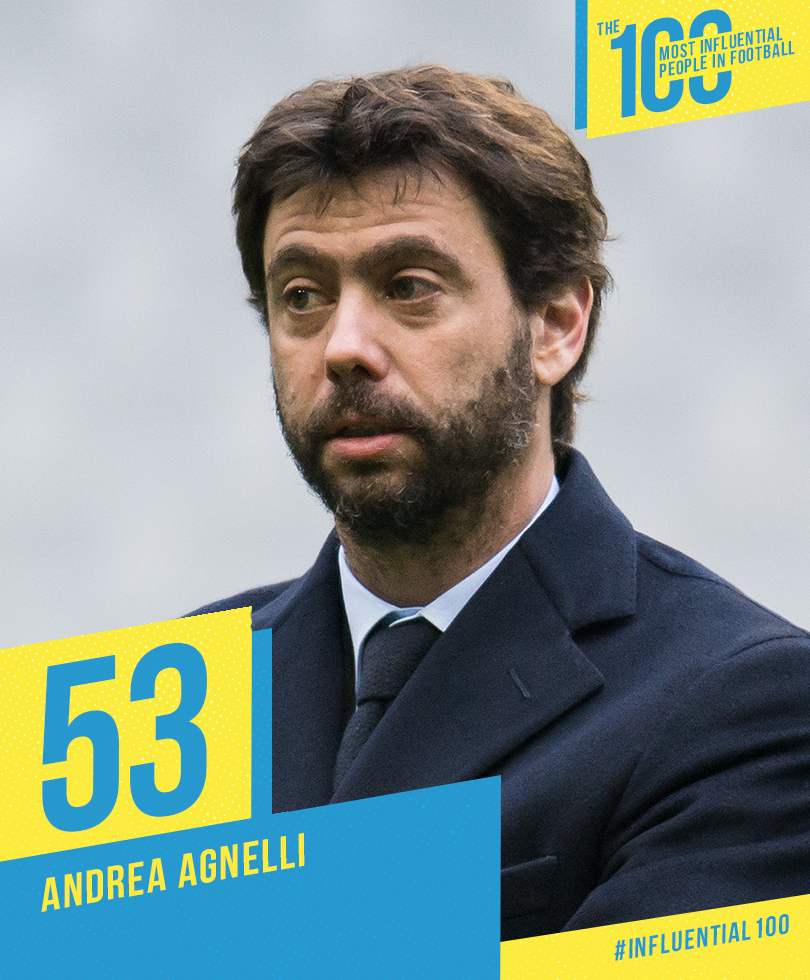
Nephew of the legendary Gianni Agnelli, Andrea took over as the chairman of Juventus during very hard times for Italy’s biggest club in 2010.
The Old Lady had difficulties overcoming the damages of the Calciopoli scandal, but Agnelli put Juve back on track. Naming Beppe Marotta as sporting director, for example, proved to be an extremely insightful choice.
Agnelli's leadership helped Juventus to become the most successful club by a distance in Italy once again, and they are about to win the Serie A title for the sixth time in a row.
Agnelli and Marotta are masterful in the transfer market, as signing Paul Pogba for free and selling him back to Manchester United for a world-record £89m would highlight. He is also aware of social aspects, claiming: "Football isn't just a game. Clubs and players must take their responsibilities, which is knowing how to take the value of football and its potential, and drive it in the right direction." MY
52. Jurgen Klopp
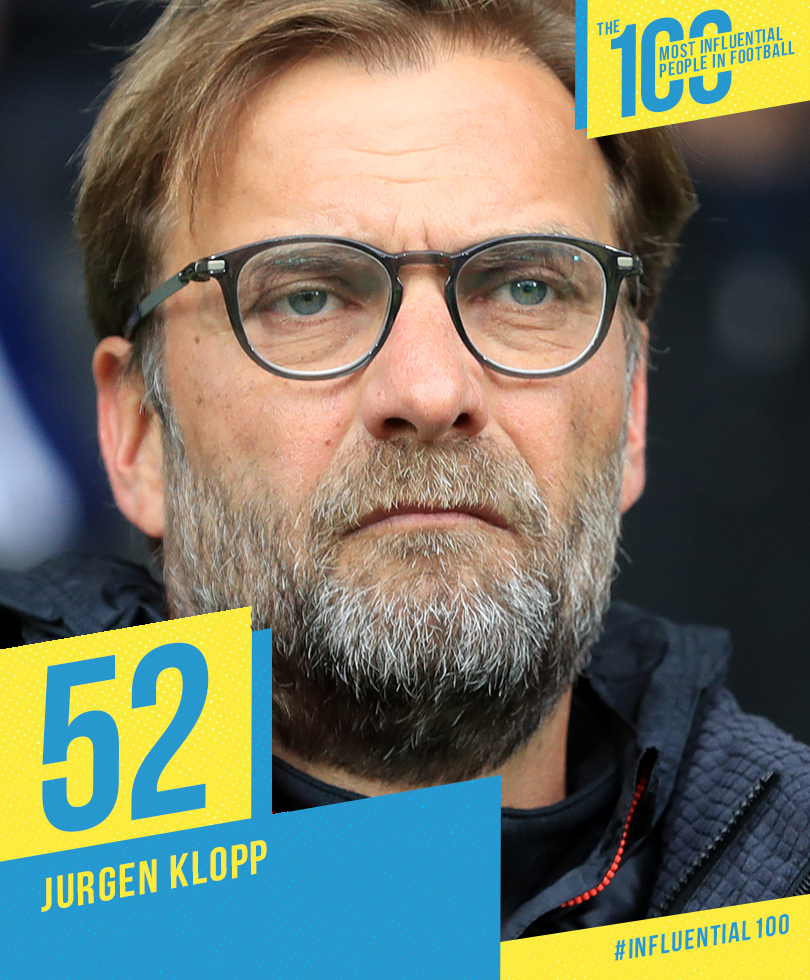
Aptly for a man who can count himself among the recent upsurge of high-profile supercoaches, Klopp’s major influence on the football world has been tactical.
The effervescent German hasn’t redrawn the tactical rulebook exactly – and he certainly didn’t invent the notion of pressing – but he’s certainly been at the forefront of the trend that’s swept the elite level of European club football. While Pep Guardiola’s Barcelona popularised the idea of monopolising possession and gradually picking the defensive lock, Klopp’s gloriously breakneck Borussia Dortmund side were mastering the art of busting the door down with urgency, pace and boundless energy.
His now-famous gegenpressing blueprint worked minor miracles at Dortmund – keeping them, for a long time, competitive with a club that raided them of their best player every summer – and it is helping him make steady progress at Liverpool, too.
Perhaps the real mark of Klopp’ss influence is how similar high-pressing, fast-countering setups can now be seen at many of Europe’s best-coached teams – including Chelsea, Monaco, Tottenham and Borussia Dortmund – and indeed Barcelona themselves, whose approach these days has looks far more like something borne of Klopp’s mind than Guardiola’s. AH
51. Michael Zorc
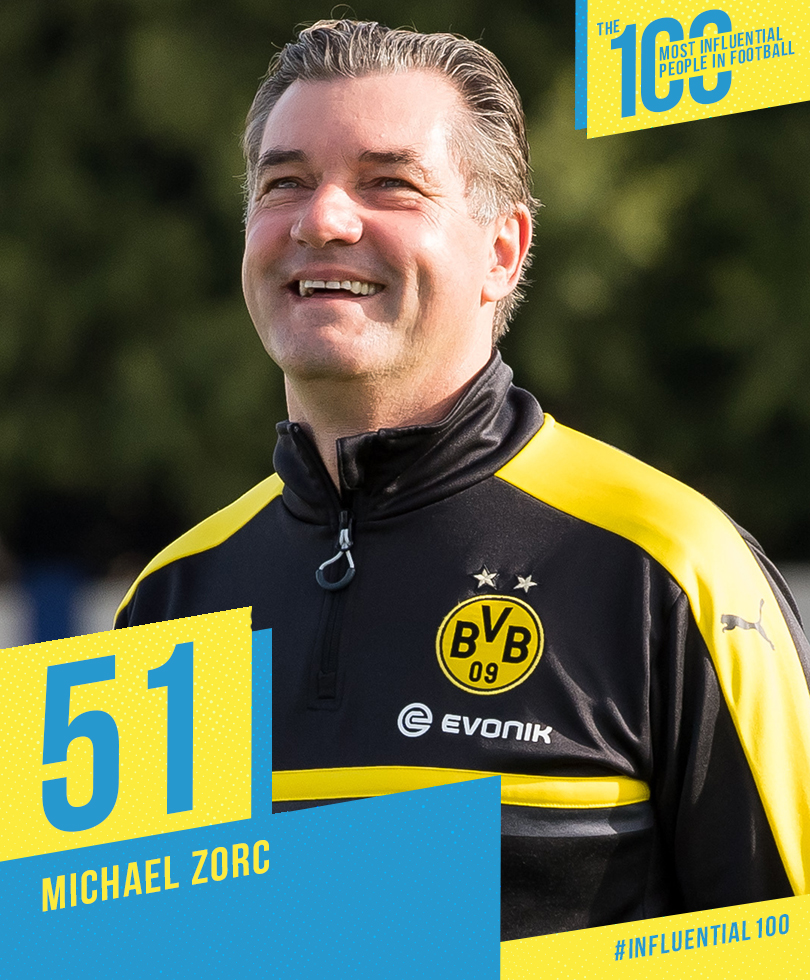
A true one-club man, Zorc spent his entire playing career at Borussia Dortmund, lifting the Champions League trophy in 1997, and is now one of the longest-serving sporting directors in Europe.
He learned important lessons when Dortmund very nearly went bankrupt in 2005, and has been extremely instrumental in establishing a new long-term strategy that ensures financial stability and success on the field at the same time.
With Zorc calling the shots, Dortmund can be seen as a selling club – most of their stars move on at some point in their career (most recently they were eventually unable to hold on to captain Mats Hummels, who joined Bayern Munich last summer), but key players are ably replaced with the help of a magnificent scouting network.
The examples of Ousmane Dembele and Christian Pulisic, two of the very best youngsters in the world signed by Zorc in 2016, stand out as great examples of the Dortmund philosophy. MY
100-91 • 90-81 • 80-71 • 70-61 • 60-51 • 50-41 • 40-31 • 30-21 • 20-11 • 10-1
Joe was the Deputy Editor at FourFourTwo until 2022, having risen through the FFT academy and been on the brand since 2013 in various capacities.
By weekend and frustrating midweek night he is a Leicester City fan, and in 2020 co-wrote the autobiography of former Foxes winger Matt Piper – subsequently listed for both the Telegraph and William Hill Sports Book of the Year awards.
